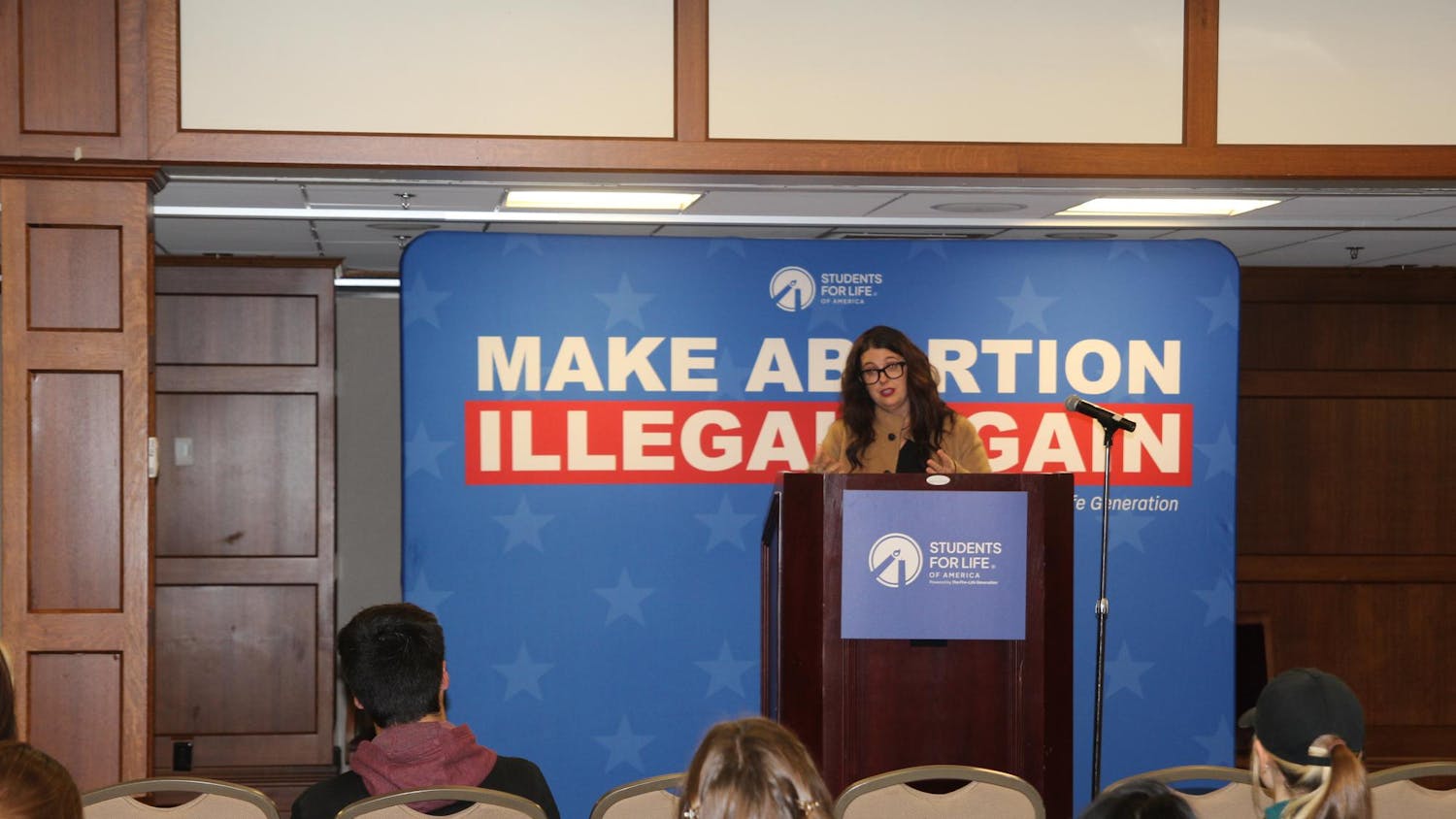Sam George got his inspiration at brunch.
For Clark Johnson, talking to an agriculture company in Mooresville, Ind., gave him the idea.
Jeremy Schmitt got his idea for a fitness supplement from the health knowledge he and his family gained when his mother was diagnosed with breast cancer.
All three are seniors enrolled in Kelley School of Business’s number one-ranked entrepreneurship class in the nation, Spine Sweat.
George, along with his girlfriend Fatima McKenzie and his brother Ross Stuckey, gathered for brunch at the Cheesecake Factory, one of their favorite restaurants.
During brunch, they talked about the show “Shark Tank” and threw around simple business ideas. George brought up an idea he had for delivering male hygiene products.
He said he realized how often he ran out of hygiene products during college.
“I was walking around campus like a caveman,” he said.
George’s idea took shape after attending a Collegiate Entrepreneurship Organization conference in Chicago with IU chapter president President Storm Anderson.
He and Anderson started the business, but that wasn’t where George wanted to stop. He wanted to present his idea to investors, too, so he enrolled in Spine Sweat.
In May 2013, Bloomberg Business Week ranked Spine Sweat the number one entrepreneurship experience for college students.
Spine Sweat was founded by Donald Kuratko, a professor of entrepreneurship at IU.
He started the course 10 years ago, he said, when he realized it was hard to teach entrepreneurship in the classroom. The element of risk is not really present in that
setting, he said.
The name was Kuratko’s father’s idea.
“Unless a student goes to bed at night and feels their spine sweat, I’m not sure if they will even understand entrepreneurship,” he said, echoing his father.
He serves as an advisor for the students in Spine Sweat, taught by professor Mark Long.
Kuratko requested Long teach Spine Sweat because he had worked in corporate business for many years.
“Mark Long is the real reason I joined the course, after much encouragement from him this semester,” Johnson said.
Johnson’s idea is to open an agriculture machinery business. He will have a sales and parts depot for sprayers and fertilizer applicators, he said.
He wants to offer an all-in-one service model for large-scale agriculture, which doesn’t exist right now. He said he feels like it could bring a lot of profit to the industry.
Students should have an idea for a business prior to enrolling in this intensive course, Kuratko said.
When students first begin the course, Long works with them to go through the patent database to make sure something similar doesn’t already exist. He doesn’t want students to waste their time creating something someone else might already be
pursuing.
Long brings in investors at the end of the semester — the culmination of the students’
hard work. Students are matched with investors who are currently working in a field where the student’s idea could be used.
There is a catch, though. Investors also determine what grade students can receive, and they can only receive an “A,” a “C” or an “F.”
If investors really like the student’s written plan and pitch, they give them the thumbs up and award them with an “A” and actually invest money into the company. If the pitch is mediocre but not worth investing in, students get a “C.” Students with an “F”
don’t pass the class.
“If a student fails the course, they take a class in the summer to help replace the “F”
they received,” Long said.
Senior Seth Harvey received an “A” and an investment last year for his business in custom clothing. He wrote a business plan for an Internet-based company that brings dress shirts straight to your door.
“You really have to give it to these investors,” he said. “In the past, investors have offered to write quarter-million-dollar checks for businesses.”
Johnson presented his business plan May 2.
“The biggest trouble I am having is narrowing down the information I have into the allotted pages,” Johnson said before his presentation.
Schmitt said he had the same trouble as Johnson.
“I have so much information that has to be put into this plan that will be submitted in a few weeks,” Schmitt said.
While waiting to present to investors, George and Anderson have worked diligently to sell their Caveboxes, which is what they now call the hygiene toolkits George dreamed
up. They both invested more than $1,000 and have seen success from the business
after their website launch Feb. 5, George said.
Male students can receive all their essential hygiene products by simply going on the website and selecting either a $15, $25 or $35 box, he said.
George and Schmitt agreed with Johnson that creating businesses in Spine Sweat takes a lot of hard work.
“(It) comes down to the risks people are willing to take,” Johnson said. “I’ve put my own money and savings on the line before, and it paid off.”
Students build businesses with Spine Sweat
Get stories like this in your inbox
Subscribe



